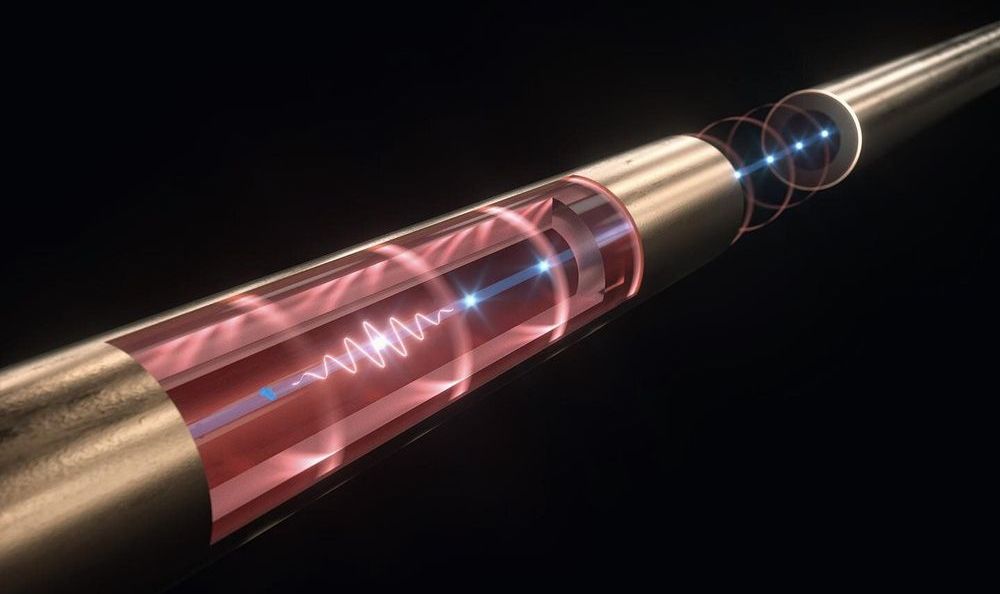A team of DESY scientists has built a miniature double particle accelerator that can recycle some of the laser energy fed into the system to boost the energy of the accelerated electrons a second time. The device uses narrowband terahertz radiation which lies between infrared and radio frequencies in the electromagnetic spectrum, and a single accelerating tube is just 1.5 centimetres long and 0.79 millimetres in diameter. Dongfang Zhang and his colleagues from the Center for Free-Electron laser Science (CFEL) at DESY present their experimental accelerator in the journal Physical Review X.
The miniature size of the device is possible due to the short wavelength of terahertz radiation. “Terahertz-based accelerators have emerged as promising candidates for next-generation compact electron sources,” explains Franz Kärtner, Lead Scientist at DESY and head of the CFEL group that built the device. Scientists have successfully experimented with terahertz accelerators before, which could enable applications where large particle accelerators are just not feasible or necessary. “However, the technique is still in an early stage, and the performance of experimental terahertz accelerators has been limited by the relatively short section of interaction between the terahertz pulse and the electrons,” says Kärtner.
For the new device, the team used a longer pulse comprising many cycles of terahertz waves. This multicycle pulse significantly extends the interaction section with the particles. “We feed the multicycle terahertz pulse into a waveguide that is lined with a dielectric material”, says Zhang. Within the waveguide, the pulse’s speed is reduced. A bunch of electrons is shot into the central part of the waveguide just in time to travel along with the pulse. “This scheme increases the interaction region between the terahertz pulse and the electron bunch to the centimetre range—compared to a few millimetres in earlier experiments,” reports Zhang.
